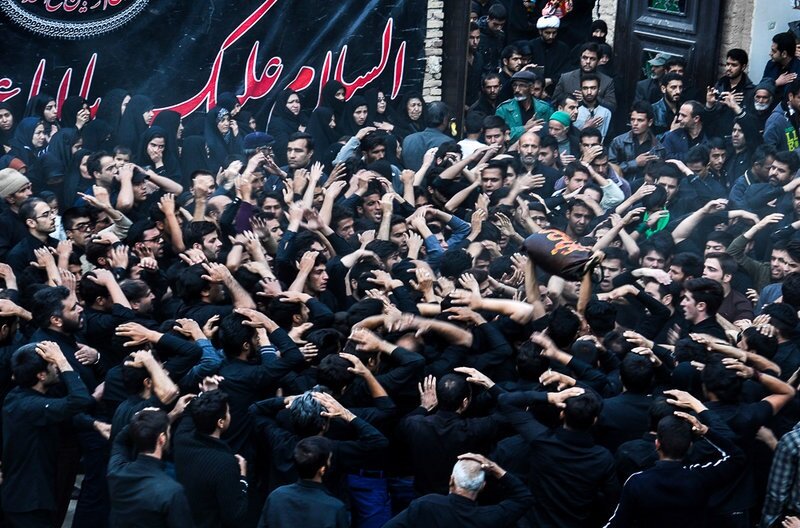TEHRAN - The U.S. dual campaign of blockade and negotiation stunts against Iran will get nowhere because the Islamic Republic of Iran is more of a cultural movement than a political one, a West Asia expert tells the Tehran Times.
The Iranian people began to commemorate this year’s Muharram at a time when the U.S. embarked on a policy of doubling down on its economic and diplomatic pressure on Iran by triggering efforts to reinstate all UN sanctions on the country.
In a highly controversial move, the U.S. has submitted a “notification” to the UN Security Council calling for the restoration of all UN sanctions on Iran. The U.S. measure was met with sweeping opposition from the international community, with 13 of the 15-member Security Council opposing the U.S. push to initiate the snapback process, a mechanism built into the Joint Comprehensive Plan of Action (JCPOA) to allow parties to the deal to restore the international sanctions on Iran in case it didn’t comply with its commitments under the nuclear deal.
Most countries on the Security Council wrote to the president of the Council, saying the U.S. had no legal authority to trigger the snapback because it has withdrawn from the nuclear deal and thus it’s no longer a “JCPOA participant state” as stipulated in the UN Security Council Resolution 2231 on which the U.S. based its complaint.
It seems that the triggering of the snapback is another step by the U.S. toward reaching what it calls a “better deal” with Iran, one that would amount to a surrender of Iran.
At the 2020 Council for National Policy meeting on August 21, which was held in Virginia, President Donald Trump said, “They don’t have too much money now…. But Iran is different. It’s having a hard time. Its GDP went down at a level that you wouldn’t even believe — in the 20s — and they’ll make a deal. I say they’ll make a deal within a month, but I probably mean a week. But I just want to be right. Because they’ll call me. They’ll say, ‘It took 10 days. He was wrong.’ They just want to see — if I win, they’ll be in making a deal.”
However, analysts believe that Trump’s view of the deal with Iran may be wishful thinking because Iran may never acquiesce to pressure.
The U.S. has launched a sanctions campaign against Iran to pressure it into signing a new, “better deal” in accordance with the White House demands, but it failed to achieve this goal, according to Ja’afar Ghannadbashi, a West Asia expert.
“Obviously, the U.S. imposed sanctions on Iran to create conditions under which Iran finds itself obliged to sign a deal under U.S. terms. Trump has overtly said that he was ripping up the nuclear deal to sign a better one. And now he is saying that ‘if we don’t sign a deal with Iran before the U.S. presidential election, we will do so after the election’,” Ghannadbashi told the Tehran Times, adding that the main purpose of the so-called U.S. “maximum pressure” campaign against Iran is to reach such a deal.
According to the expert, the Trump administration intensified the pressure campaign on Iran in May 2018 but failed to destabilize Iran in the ensuing years, which disappointed them and raised concerns in Washington over the failure of the White House Iran policy.
Referring to the U.S. latest defeat at the UN Security Council, Ghannadbashi said, “Currently, the U.S. only wants to save face.”
“Internally, Iran is in a very strong position despite some domestic problems. Iran has done a good job. The Americans didn’t believe that Iran would be able to contain the unrest,” pointed out the expert.
He said that Muharram once again pumped the Iranian people up and fueled the anti-U.S. sentiments among them, especially as Trump turned the public against the U.S. by assassinating IRGC’s Quds Force commander General Qassem Soleimani.
“The Iranian people deeply love General Soleimani. The Americans made a mistake by assassinating him. While the U.S. accuses Iran of supporting terrorism, the people know that Soleimani was the man who fought against terrorism,” Ghannadbashi stated.
He said the Iranian people have a deep affection for the Ashura uprising and that the Islamic Republic of Iran is more of a cultural movement that is inspired by Imam Hussein's (AS) martyrdom.
“No country can confront a cultural movement,” Ghannadbashi asserted, adding that Trump’s infamous threat to target Iran’s cultural sites was a very big mistake that mobilized the people against him.
The Islamic Republic of Iran has always sought to follow in Imam Hussein’s footsteps and introduce him to the world because it believes that the Imam rose up against corruption and oppression.
“The logic of Hussein ibn Ali (greetings be upon him) is the logic of defending the truth and resistance against oppression, transgression, deviation, and arrogance. This is the logic of Imam Hussein. Today, the world needs this logic. Today, the world is witness to the rule of kufr, arrogance, and corruption. The world is witness to the rule of oppression. The message of Imam Hussein is the salvation of the world. The great movement of Arbaeen conveys this message to the whole world and by Allah’s favor and grace, this movement should be strengthened on a daily basis,” Leader of the Islamic Revolution Ayatollah Seyed Ali Khamenei said on September 21, 2019.


No comments:
Post a Comment